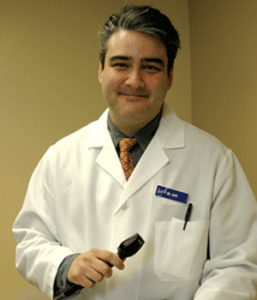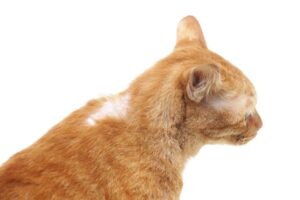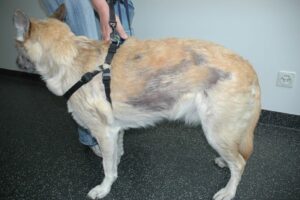-
Adopt
-
Veterinary Care
Services
Client Information
- What to Expect – Angell Boston
- Client Rights and Responsibilities
- Payments / Financial Assistance
- Pharmacy
- Client Policies
- Our Doctors
- Grief Support / Counseling
- Directions and Parking
- Helpful “How-to” Pet Care
Online Payments
Referrals
- Referral Forms/Contact
- Direct Connect
- Referring Veterinarian Portal
- Clinical Articles
- Partners in Care Newsletter
CE, Internships & Alumni Info
CE Seminar Schedule
Emergency: Boston
Emergency: Waltham
Poison Control Hotline
-
Programs & Resources
- Careers
-
Donate Now
 Joel Kaye, DVM
Joel Kaye, DVM
Angell General Medicine Service
617-522-7282
www.angell.org/generalmedicine
Alopecia is defined as the partial or complete lack of hairs in areas where hair is normally present. Hair loss is just a symptom and the underlying cause must be determined for the condition to be successfully treated.
Hair loss can be acquired or congenital (born with the condition). Congenital hair loss is characterized by the lack of normal development of hair follicles. In acquired forms the pet is born with a normal coat. Any disease that can affect hair growth or disrupt the follicle can lead to hair loss. Most commonly a disease or process will create discomfort leading to self-trauma (scratching, biting) and subsequent hair loss.
 Diseases that can directly damage or destroy the hair shaft include bacterial, fungal (ringworm), or parasitic (mites, fleas, lice) causes. Diseases that slow or inhibit hair growth include nutritional or hormonal imbalances such as hypothyroidism and Cushing’s disease. Temporary hair loss can occur with pregnancy, lactation, or after severe illness. Another interesting syndrome sometimes seen is “post clipping alopecia”, where the hair takes a protracted period of time to regrow after it has been shaved off.
Diseases that can directly damage or destroy the hair shaft include bacterial, fungal (ringworm), or parasitic (mites, fleas, lice) causes. Diseases that slow or inhibit hair growth include nutritional or hormonal imbalances such as hypothyroidism and Cushing’s disease. Temporary hair loss can occur with pregnancy, lactation, or after severe illness. Another interesting syndrome sometimes seen is “post clipping alopecia”, where the hair takes a protracted period of time to regrow after it has been shaved off.
By far the most common cause of acquired hair loss is self-trauma secondary to pruritus (itchiness) or discomfort. The most common causes include infections, parasites (fleas, ticks, mites) and, most commonly, allergies. The allergies can be to food ingredients or environmental in origin. One easy way to tell if your pet is traumatizing his or her fur is to pluck a hair and look at it under a microscope. A normal hair will taper to an end a traumatized hair will be blunted.
Some pets, especially cats, can develop hair loss secondary to over grooming. This is typically a stress response, but all other causes need to be explored well.
Signs of hair loss are greatly influenced by the underlying cause. Congenital and hormonal causes are typically symmetrical (evenly distributed on both sides of the body), and at least at the beginning, are not associated with inflammation or changes in the skin. Acquired hair loss is usually associated with secondary skin changes such as crusts, scales, skin color change, and pruritus.
An accurate diagnosis requires a thorough history, comprehensive physical exam and specific skin testing. Skin tests could include: skin scrapings for mites, combing for fleas and lice, tape cytology for bacteria and yeast, and a fungal culture for Ringworm. Your doctor may also recommend blood and urine testing based on your pet’s age, history and clinical presentation. For allergies, your veterinarian may recommend a hypoallergenic food trial, or skin or blood testing.
Successful treatment for hair loss depends on the underlying cause and specific diagnosis. This can sometimes feel like a lengthy and frustrating process of elimination as a pet owner until the final outcome is achieved.
For information about Angell’s General Medicine service, please visit www.angell.org/generalmedicine or call 617-522-7282.


